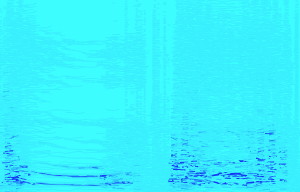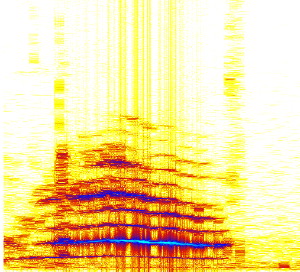Computer Music


This seminar is loads of fun to teach, because we usually choose a topic for the term that resonates with work we are doing. We wind up teaching what we like! This semester is no exception. In past incarnations of this class, we have said something like: The purpose of this class is to explore bold and exciting new musical applications of computers and digital technology. We still intend to do a lot of that this year, but the particular area we'll be exploring is the wild and wonderful field of timbre (isn't wikipedia fun?) We will be engaging more with the 'theoretical' side of doing computer music than in the past as befits the topic. We'll be considering the notion of timbre from three perspectives: perception, analysis and production. Instead of presenting each as a block, they will be interwoven throughout the term. It really isn't advantageous to separate them. For example, a good understanding of many current percpetual theories relies on a grasp of the Fourier transform, which is best presented as an "analysis" tool, and HEY! you can also produce cool sounds with it! So we'll be bouncing between discussions of perceptual research and presentations of how to use DSP tools to create and modify digital audio.
We'll also have a couple of special guest-stars coming into the class as the term progresses. Stay tuned for partciular info about them. They will be listed on the course syllabus as soon as things get set.
Although we will be doing some computer-music programming
in the class using various languages, you should not
worry if you don't have
major computer-hacking skills. This is not intended as
a programming class. In fact, this term more than others
we will not be emphasizing the low-level 'tech' aspects of computer music,
doing more research-ey type work instead. Of course,
along the way we will indeed introduce a number of contemporary computer
music languages and interesting software applications. Hopefully
you will find some of these intriguing and will want to learn
more about them. We will certainly be available to help with
any problems you encounter as you explore these packages in more
depth. Just ask!
Here are a few links to software that we probably will be using in class:
Please let us know if you are having problems getting equipment or
software apps to work for you. In general, if you are having difficulty
understanding the programming paradigms
we are using or the applications and information we are covering.
be sure to talk to us. We'll be happy to sit down and work through
any issues with you.
Each week we do will become a link to information relating to that
class. We'll try to keep up with linking in class patches, examples
and information, but we may fall behind. Yell at us when we do.
It's always a good idea to make an appointment to see me, even during my purported office hours, because I often have to run around campus like a maniac doing strange, computer-music stuff. If you need to contact someone at the CMC or Music Department using your actual voice, the relevant phone numbers are:
I say this every year, and generally people believe it (I think): by this point in your career the last thing you should be worrying about is a grade. The main thing is to find something that you'd really like to do and then do it. Please don't try to impress us with your consummate knowledge and skill, we are more impressed by people who do things. Honest!
Hope you enjoy the class!
